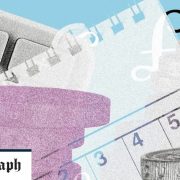Gloomy warnings from the Bank of England about the nation’s risky borrowing habits have been a regular feature of the past year, but new figures suggest these fears may have been overblown.
A year ago Mark Carney, the Bank’s Governor, sounded the alarm on the rapid expansion of consumer credit, saying banks were “failing to learn the lessons” of the financial crisis.
It is true that the British appetite for driving the latest cars and extending our homes shows no sign of abating – and much of the growth in recent years has been fuelled by debt. But, contrary to concerns about “subprime” lending to the poorest in society, a very different picture is emerging: the driving force behind the increase is the middle class.
Figures from Freedom Finance, a lending intermediary, show that the middle-class borrowing boom is gathering pace.
Last month just over half of its new loans were taken out by customers with an “excellent” credit rating, defined as higher than 450 with Equifax, the credit scoring group. Six months ago this figure was just 32pc.
The number of new loans issued through Freedom Finance to those with excellent ratings rose from 1,385 in November last year to 5,843 last month, a fourfold increase.
Brian Brodie from the firm suggested that wealthy savers could be turning to loans because record low interest rates had driven many to lock their savings up in fixed-term accounts.
Rock-bottom interest rates lower the return on cash but make it cheaper to borrow. The average rate on a £7,500 personal loan has plunged by a third in just five years, from 6.9pc to 4.6pc today.
Charlotte Nelson from Moneyfacts, a data provider, said: “With rates on personal loan rates still falling, it is easy to see why people are attracted to the deals on offer. The wealthier you are the more likely you are to meet the lenders’ criteria and be accepted for these deals.
“The wealthy have not been immune from the wage stagnation that has occurred recently. Borrowing by using a credit card or loan allows the borrower to maintain the standard of living they are used to.”
Mr Brodie said: “Lots of these people will have their wealth tied up and locked away, particularly while rates are so low. With the amount you’d have to pay and the effort to get that money out, many people might be better off borrowing the money. If you have a good credit history, that’s easy enough to do.”
He added that the rising number of interest-free offers and credit cards had fuelled the trend.
Figures released by the Bank of England at the beginning of this year also showed that much of the nation’s borrowing was being done by those without a mortgage. Soaring house prices have forced many to rent into their 30s, with some estimates suggesting that a third of millennials will still be renting in retirement.
Credit:
Simon Dawson/Bloomberg
Joe Gladstone, a personal finance expert at University College London, said this had ushered in a generational shift in attitudes to money. “There is an increasing number of professional people who don’t have a mortgage and might be living different lifestyles that encourage them to spend,” he said.
“There’s this idea around whether young people are prioritising experiences over stuff. That might be encouraging them to take on more debt. People always tend to extend their consumption to the boundaries of what they can spend.”
Early warning signs?
Mr Carney has warned that the lessons of the 2007-08 financial crisis are being forgotten. His caution was aimed at banks but Mr Gladstone said consumers were just as guilty.
“We are due another recession,” he said. “This has been the longest recovery since the Second World War and this is what happens when you are overdue a recession. People forget what it was like when half their friends lost their jobs. “Many have forgotten they need a buffer of money. There are lots of risks in life and even though the chances of any individual one happening are small, it’s likely that something won’t go to plan.”
Mr Brodie said he shared some of Mr Carney’s past concerns but suggested that his warning might have been geared more towards cooling down the industry – and that it has had the required effect.
“A growing economy needs some fuel and often that fuel is credit,” he said. “The Bank doesn’t want to cut that off altogether, otherwise that hurts the economy, but they don’t want it to become overblown.”
Despite the concerns, in this climate of record low rates borrowing could make a good deal of sense for some – particularly trustworthy borrowers with high credit scores.
Credit:
Gareth Fuller/PA
Scott Gallacher, an adviser at wealth manager Rowley Turton, said some of his clients had been able to take advantage of low rates on debt.
“If you have a mortgage that you could pay off but you’re only paying 2pc, you might think ‘If I invest that money, will I make 2pc?’. You probably will. It’s not without its dangers but it could make sense for you,” he said.
He also said low rates had helped one of his clients cut annual interest payments on a £1m mortgage from almost £50,000 to £5,000, allowing them to keep paying school fees, for example. “Debt is so cheap that people have been able to keep the party going,” Mr Gallacher said.
By far the most popular reasons for taking out loans with Freedom Finance were to fund home improvements or to buy a car.
Mr Brodie said there were good reasons you might want to take out finance, saying “it all depends on individual circumstances, but for many it will be the right answer”. He said uncertainty around Brexit had made people more reluctant to move home, choosing to stay put and refurbish instead.
“A new car too is quite a big purchase. People in the middle classes will still need to raise funds for that and they will be able to borrow relatively cheaply.”
But Mr Gladstone had concerns. “There are definitely times when low-cost debt can work if you use it for another sensible investment,” he said. “But there’s good debt and bad debt. If it’s low cost and you have a good plan to pay it back, it can work, but there are always risks that we can’t predict.
“All it would take is for a recession to come along and suddenly that £20,000 you took out against your house doesn’t look like such a good idea.”
























Comments